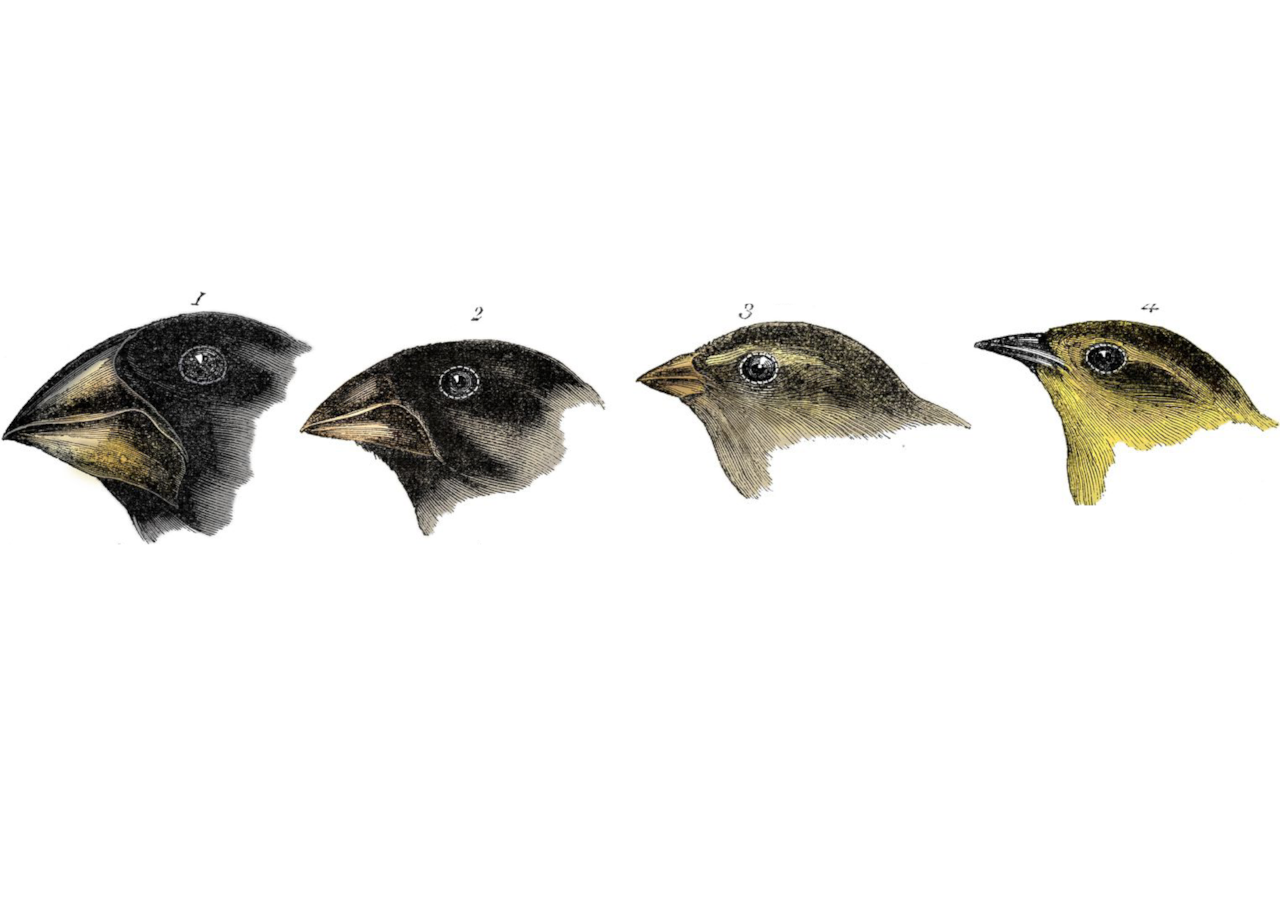British naturalist Charles Darwin, born on 12 February 1809, is credited with changing the way we think about the natural world. His writings were influenced by observing finches in the Galapagos Islands. After noting the birds had evolved slightly different characteristics that enabled them to compete to survive, he gave this phenomenon a name: natural selection.
At Blackfinch, we apply the same theory of natural selection to the tech start-ups we invest in. Our role is to identify companies with those adaptive characteristics we believe will give them a competitive edge. We then provide them with venture capital and business insight to help ensure they do more than simply survive. We work hard to create good relationships with the founders of the companies we talk to, because we want every start-up we invest in to thrive. As Darwin himself believed: “The vigorous, the healthy, and the happy survive and multiply”.
Choosing the right investments
For our Ventures team, it all starts with identifying those tech-led start-ups with the best chances of future growth. Our team features people who have been there and done the work of raising capital ourselves, so we can spot when companies are evolving and moving up the ‘growth curve’. Here’s what we mean. In their early days, the aim of most tech start-ups is to get to market as early as possible with a ‘minimum viable product’ that tests their hypothesis. Normally this iteration of the product doesn’t quite work. Tech firms then must learn, adapt, modify and pivot into something that better resonates with a customer base. As Darwin put it: “It is not the strongest of the species that survives, nor the most intelligent... It is the one that is the most adaptable to change”. After the start-up has perhaps pivoted a few times before evolving into something more competitive – and start gaining serious traction and momentum – this is what we identify as the ‘product market fit’ stage. It’s at this point, that we consider it the right time for us to make an investment.
Creating a diverse portfolio
The Blackfinch Ventures EIS focuses on investing in tech companies. This means we invest in companies across any sector with technology at the core of their offering. Investing through the Enterprise Investment Scheme (EIS) enables us to start investing in companies earlier in their development. However, because EIS-qualifying companies are early-stage, and at the higher end of the risk spectrum, we diversify this risk two ways: by investing across different sectors and by investing in companies at different stages of their lifecycle.
Sector diversification
If our EIS investment portfolio featured only retail tech businesses, we would have made heavy losses when COVID struck. Instead, we invest across multiple tech-related areas, such as ed-tech, artificial intelligence, HR-tech, software-as-a-service (SaaS), wearables and consumer electronics, to name a few. In total, we have invested across more than 15 different sectors where technology is driving innovation and creating market disruption. This layer of diversification was crucial during COVID, as while some portfolio companies were impacted, others were able to adapt to the new environment, creating solutions fit for the new world we were living in, and emerged stronger for the experience. We saw this as Darwin’s ‘survival of the fittest’ theory playing out in real-time.
Stage diversification
The second way we diversify is by investing in companies at different stages of growth. We invest in very early-stage businesses with low valuations, because if we get it right, the return multiples on those investments can be huge. But we will also invest in more established companies with higher valuations where the investment risk is lower because they are further along their growth curve. This approach really gives us the best of both worlds, and ensures we build portfolios that are capable of delivering strong returns for investors, without taking on too much risk, or too little risk and therefore missing out on the potential for growth.
Using innovation and technology to find future-changing tech firms
Just as we expect the companies we invest in to find ways to compete and thrive, we also apply this same competitive side to finding the best tech start-ups. While we find new investment opportunities in many of the same ways other venture capital firms do – through accelerators, incubators and start-up hubs, as well as via our founders network, our competitive edge is derived from our own start-up research. We combine the use of proprietary research platforms with our own data-driven algorithms to proactively find some of the most exciting EIS-qualifying companies in the UK today that are likely to be seeking new investment. We then use our tech experience to narrow down to those firms that fit out investment thesis the best and proactively reach out to those founders. As Darwin’s research demonstrated, the early bird catches the worm.
The result of these endeavours is the construction of EIS-qualifying portfolios for investors featuring at least ten tech-led companies, strategically spread across multiple sectors and growth stages. Our team of founders, academics and tech specialists then provide the knowledge and expertise to help these businesses succeed. Plus, our exclusive network of Ventures Partner entrepreneurs, industry leaders and technology experts help our portfolio companies evolve from within, as board directors. We’ve taken Darwin’s words to heart, that: “In the long history of humankind (and animal kind, too) those who learned to collaborate and improvise most effectively have prevailed”.
Find out more about Blackfinch Ventures EIS Portfolios
The Blackfinch Ventures EIS portfolios invest in companies that are pairing human creativity with tech-led innovation – fledgling companies with strong ideas, high-growth prospects and environmental, social and governance (ESG) principles at their core. We plan on deploying EIS capital into several outstanding companies before tax year-end.
Visit www.blackfinch.com/ventures to find out more.
Capital at risk.

